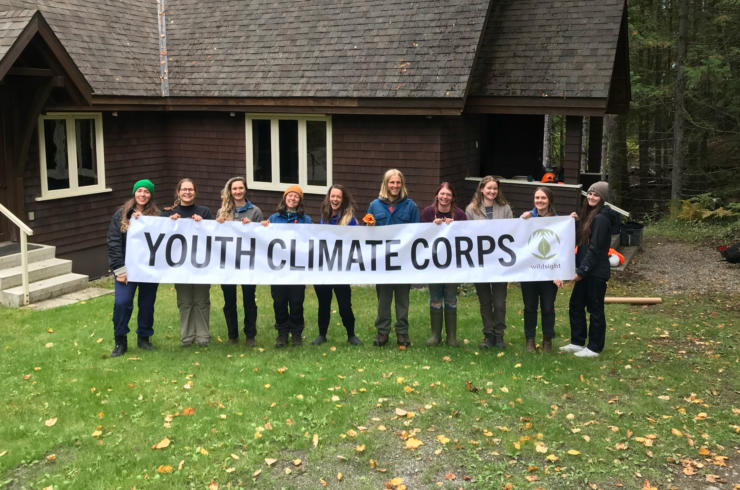Western science is slowly catching up with Indigenous knowledge as our understanding of fire ecology grows. Through fire, Indigenous peoples are decolonizing the land, one hectare at a time.
Fires have always been a part of forest life cycles. Natural fires (such as lightning-caused) sweep through landscapes, and, for many millennia, Indigenous nations used fire to steward their land — either through deliberately-lit, low-intensity burns, or by letting wildfires burn through.
These traditional fire regimes kept many different ecosystems healthy and intact, benefitting wildlife and people alike.
After colonization, Indigenous burning practices were widely suppressed1, bringing a host of unexpected consequences including denser forests that add fuel to wildfires, allowing them to burn higher, further, faster and hotter.
But now, western science is catching up with Indigenous knowledge, leading to the return of Indigenous fire management on the landscape.

Indigenous fire management: Ktunaxa Nation
This spring, the Ktunaxa Nation’s ʔaq̓am community conducted a large prescribed burn on their traditional territory near Cranbrook with BC Wildfire crews and contractors. Their goals were to reduce fuel loads and burn dead organic material to allow for ecosystem regrowth.
“Regular burning was a part of our cultural practices pre-contact times when it was just Indigenous people in this province … We used fire often and all over Ktunaxa homelands,” nasuʔkin (Chief) Joe Pierre told the Cranbrook Townsman2.
Two months after the prescribed burn, a wildfire ripped through the ʔaq̓am community, displacing community members and destroying seven homes. Nasuʔkin Pierre said more damage would have occurred were it not for the prescribed burn.
“If it wasn’t for that prescribed burn, [the fire] would have gone directly towards the airport itself,” he told the Townsman. “BC Wildfire Service were able to move their own resources to other parts of the fire and they didn’t actually have to worry about the prescribed burn area.”
The ʔaq̓am burn is significant for other reasons too; it signifies a shift in how some Indigenous nations are managing their territory. The act of burning is becoming an act of decolonizing the landscape, one hectare at a time.

Golden Youth Climate Corps on decolonizing the landscape

On a wooded hill above the local high school in Golden, B.C., a young Metis man named Reid Parkinson has been coming to a similar realization.
Reid was a member of Wildsight’s Golden Youth Climate Corps (YCC), a workforce of passionate young people dedicated to building a more climate-resilient future. For eight weeks this fall, Reid and his fellow crew members thinned two hectares of forest around Golden’s Keith King Memorial Park as part of a wildfire risk reduction project.
The crew removed branches, debris and smaller trees that could fuel a forest fire. For the City of Golden and local residents, the project helped safeguard homes, public spaces and other community assets from wildfires. But for Reid, the work took on a more personal significance.
“As an Indigenous person, it feels very good to know that I am personally decolonizing something as important as the forest itself. This is a really good step towards the land-back movement,” Reid says. “We are putting the community in a better spot for forest fire protection, and bringing back the Indigenous way which has been taken from us for many years.”
Reid says it made him feel good to know he was bringing the forest back to a state his ancestors would have recognized.
“This project has reminded me that there are plenty of ways that we can decolonize the place we live in while also protecting our community.”
The Golden Youth Climate Corps’ 2023 Wildfire Risk Reduction project was a collaboration with the Town of Golden. The crew gratefully acknowledges in-kind support from the Golden Fire Department, which trained the YCC crew in basic fire suppression and entrapment avoidance (S100 and S185).
Wildsight’s Youth Climate Corps exists to connect, inspire and empower young adults interested in making a difference to tackle the climate crisis through paid training and employment opportunities. We recently wrapped up our Golden season, alongside our Kimberley/Cranbrook season. Watch our website for 2024 hiring, open soon!

- https://summit.sfu.ca/_flysystem/fedora/2022-11/etd21906.pdf
- https://www.cranbrooktownsman.com/news/premier-talks-drug-crisis-wildfire-management-with-aqam-5933910








